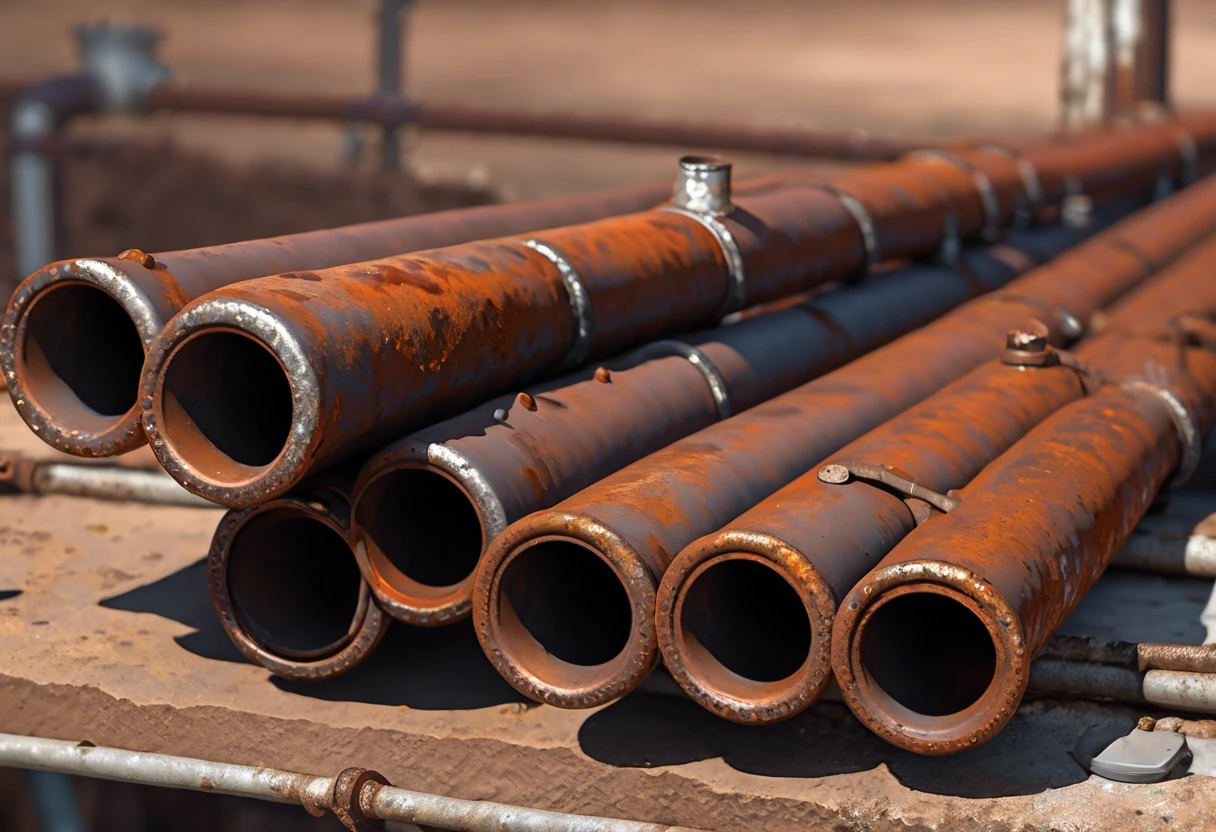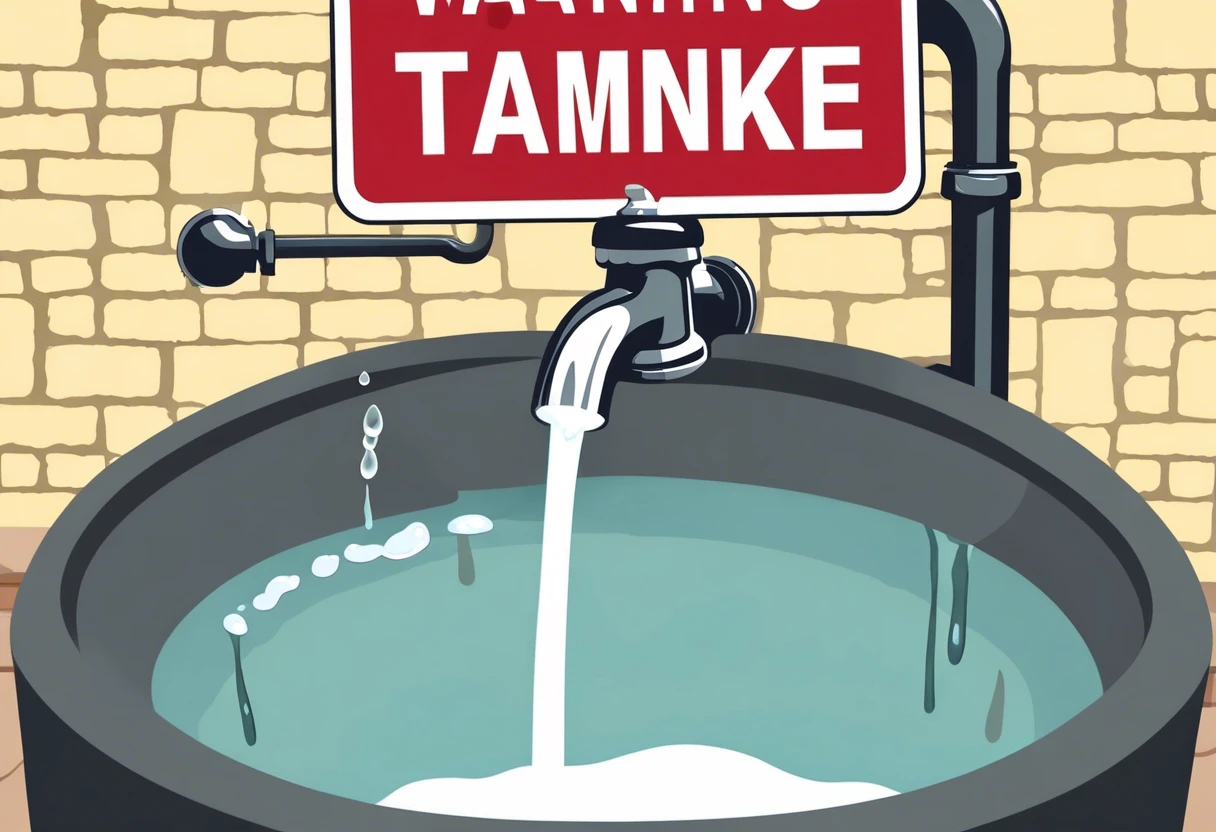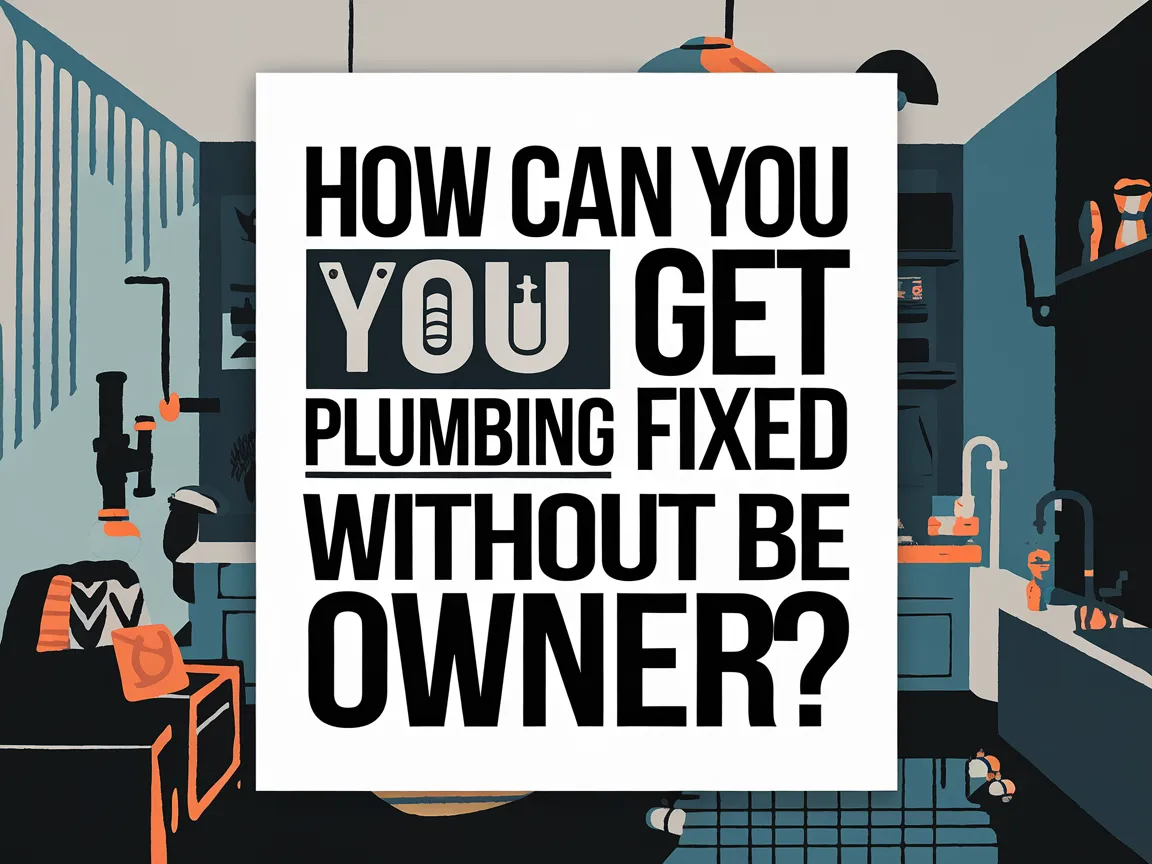How Dangerous is Lead Solder in Plumbing? Understanding Risks and Safety
Published on: April 9, 2025 | Last Updated: April 9, 2025
Written By: anaheimplumbers
Hey there! If you’re wondering about the dangers of lead solder in plumbing, you’re not alone. Many homeowners, especially here in sunny Anaheim Hills, are concerned about what’s lurking in their pipes. You might ask, “Could this affect my family’s health?” or “Is replacing my plumbing worth the cost?” Let’s dive into this topic together.
I totally understand your concerns. As a seasoned plumber, I’ve tackled a variety of plumbing issues, and lead solder is serious business. I’ve encountered it multiple times in older homes throughout Orange County (OC). I’m here to share my insights to help you navigate through this potentially hazardous situation.
So here’s what I’ll cover. We’ll look at the dangers of lead solder, its effects on plumbing systems, and the costs of replacement. Finally, we’ll discuss when it’s beneficial to call in an expert for help. By the end, you’ll feel more informed about lead solder in plumbing and the steps you can take to protect your family!
Page Contents
- 1 How Dangerous is Lead Solder in Plumbing?
- 2 Key Takeaways From Our Research on Lead Solder in Plumbing
- 3 Understanding the Dangers of Lead Solder in Plumbing Systems
- 4 Continued Discussions on Lead Solder in Plumbing
- 5 Cost of Replacing Lead Pipes in Your Plumbing System
- 6 When to Hire an Expert for Plumbing Lead Concerns
- 7 Frequently Asked Questions About Lead Solder in Plumbing
- 8 Final Thoughts on Lead Solder Risks and Mitigation Strategies
- 9 Additional Resources for You:
How Dangerous is Lead Solder in Plumbing?
Yes, lead solder in plumbing can be dangerous. It can contaminate drinking water, leading to significant health risks, particularly for vulnerable populations like children and pregnant women. You should consider the age of your pipes and local water quality. Always look for alternatives to keep your family safe.
Key Takeaways From Our Research on Lead Solder in Plumbing
Here are the main points to remember regarding the dangers of lead solder in your plumbing system:
- Lead solder poses serious health risks, particularly for children and pregnant women.
- Understanding the dangers is key to preventing plumbing-related health issues.
- Replacing lead pipes can be costly, but it’s essential for ensuring safe drinking water.
- Recognizing when to hire a plumbing expert can save time and reduce the risks associated with lead solder issues.
Understanding the Dangers of Lead Solder in Plumbing Systems
What is Lead Solder and Its History in Plumbing?
Lead solder is an alloy made up of lead and tin, commonly used in plumbing practices to join copper or other metal pipes. Its usage dates back to ancient times but saw significant adoption in the 20th century. In sunny OC, it was once favored by contractors for various residential and commercial jobs. However, adverse effects from lead exposure soon caught the public’s attention.
The Health Risks Associated with Lead Exposure
The health risks of lead exposure are alarming. Lead poisoning can result in severe neurological issues, particularly in children, and is also linked to high blood pressure and other long-term health complications. Understanding how dangerous lead solder is in plumbing should put everyone on high alert because prolonged exposure is rarely a minor issue—it can have devastating consequences.
How Lead Contamination Occurs in Water Systems
Lead contamination can occur when lead solder is used to join pipes, causing tiny particles to leach into drinking water. This is especially problematic in Anaheim Hills, where stagnant water often remains in pipes for extended periods, resulting in continuous exposure for residents. Understanding the landlord’s obligations related to plumbing is crucial in this context. Landlords have specific responsibilities concerning plumbing issues in rental properties, particularly in alignment with local laws. If you have any specific questions about these obligations, you can find more detailed information regarding landlord plumbing responsibilities.
Throughout my 15 years of plumbing experience, I have had the opportunity to work on numerous older homes. In these properties, even minor plumbing jobs can disturb lead residues, raising significant health concerns. During my inspections, I frequently encounter homes still utilizing original lead solder, which can pose risks. Corrosion around soldered joints often serves as a red flag, signaling the potential leaching of lead into the drinking water of families. Moreover, certain household products, such as toilet paper, can contribute to clogs in aging plumbing systems, further exacerbating these issues. To understand whether Charmin is likely to cause plumbing problems in older systems, you can check out this resource about Charmin and plumbing clogs.
Local regulations also play a role. Since 1986, the safe limit for lead content has been progressively lowered. However, while regulations are stringent, enforcement can be inconsistent. If you’re not vigilant and continue to use old lead solder, the danger escalates swiftly.
Several factors influence how dangerous lead solder can be: water pH, temperature, and the duration water spends in the pipes. I once replaced a lead line in a friend’s attic because stagnant water had been left too long—essentially, it became a reservoir for lead contamination. Older homes in The Valley can trap moisture and encourage alarming rates of lead leaching if not properly managed.
The costs associated with replacing lead pipes can vary significantly, ranging from $2,000 to $15,000 (USD) depending on the complexity of the job. This financial burden often leads many homeowners to consider DIY approaches. However, it’s important to note that during renovations, the dangers associated with lead solder are sometimes overlooked. Prioritizing safety is essential, especially for families living in beautiful neighborhoods like Anaheim Hills. Ignoring lead supply lines can result in serious health consequences. If you have concerns about your water heating system, keep in mind that enlisting a qualified technician is a smart choice; they can efficiently manage the installation of new units in your home. You can trust that plumbers install water heaters safely and effectively, ensuring that you have access to clean and safe water.
Every time I encounter families unaware of their plumbing’s hidden dangers, I feel a sense of urgency. It’s vital to replace hazardous materials and adopt lead-free solder practices to remove this health threat from our drinking water. Remember, safe, clean plumbing is foundational for a healthy and livable home.
Also See: Can I Own a Plumbing and Electrical Business in Anaheim Hills?

Continued Discussions on Lead Solder in Plumbing
Insights from Community Discussions
In online communities like Reddit, numerous homeowners express their worries about the presence of lead solder in plumbing. Many share personal stories about discovering lead in their homes, raising important health and safety concerns.
Lead Solder Ban Timeline
Lead solder was banned for plumbing applications in 1986 when Congress enacted the Safe Drinking Water Act. This significant legislation marked a turning point in U.S. history, underscoring the critical need to safeguard public health from dangerous materials. If you’re thinking about updating your plumbing, understanding the associated costs is essential. For instance, knowing how much a plumber charges to install a toilet can greatly assist you in budgeting for these vital enhancements.
Current Use in Electronics Manufacturing
Lead solder is still used in some electronics manufacturing, particularly in components that do not come into contact with drinking water. However, the trend is shifting towards lead-free alternatives in many applications.
Lead-Free Solder: A Safer Alternative
Let’s explore lead-free solder. Made from safe materials like tin, silver, and copper, it offers a reliable alternative for plumbing applications. I switched to lead-free solder during a plumbing project in Anaheim Hills, and it proved equally effective, if not better, in protecting against various plumbing issues.
Repair Considerations: Is Lead Solder Still Safe?
Here’s the bottom line: using lead solder for plumbing repairs is unsafe, and you should always opt for lead-free alternatives. Lead solder can release toxins into drinking water, which has alarmed many of my clients when they discovered the potential for contamination. This highlights the critical importance of taking precautions in plumbing repairs. It’s vital to be aware of which plumbing pipes might jeopardize your health, especially those constructed from harmful materials. To help you stay informed about the risks associated with various pipes, you can find valuable information in this guide on what plumbing pipes are bad.
Long-Term Health Implications
Lead can gradually infiltrate drinking systems, but effective remediation is straightforward. Replacing lead solder and pipes may seem expensive, yet it is a necessary investment in safeguarding health long-term.
Cost Implications of Replacing Lead Pipes
Replacing lead pipes demands a significant financial commitment, with costs varying widely between $2,000 and $15,000. I recall a client in The Valley who was initially taken aback by the potential expenses, but ultimately recognized it as a valuable investment in peace of mind. To better understand the financial implications, it’s beneficial to consider the costs associated with new plumbing during a comprehensive renovation or upgrade, which you can explore in detail through how much new plumbing costs.
Do Copper Pipes Contain Lead?
Finally, are copper pipes safe? Copper is generally lead-free, but it can contain lead if soldered with lead-based solder. It’s crucial to check and ensure your plumbing is safe!
- How dangerous is lead solder in plumbing? It can release toxins into water.
- Lead solder was banned for plumbing use in 1986 under the Safe Drinking Water Act.
- It still exists in some electronics but not where it contacts water.
- Lead-free solder employs safer materials and is a viable option.
- Using lead solder for plumbing repairs is unsafe and should be avoided.
- Lead’s toxicity can cause systemic issues in plumbing systems.
- The cost to replace lead pipes generally ranges from $2,000 to $15,000.
- Ensure copper pipes are lead-free; solder may be a risk factor.
Cost of Replacing Lead Pipes in Your Plumbing System
From my plumbing experience in Anaheim Hills, I’ve found that the cost of replacing lead pipes typically ranges between $2,000 and $15,000. This price varies based on the home’s size and the complexity of the plumbing system. Additionally, homeowners should be prepared for unexpected expenses, such as permits or the need for excavation, so I recommend budgeting around $5,000 to $10,000 for an average project. If you’re contemplating a comprehensive upgrade, it’s crucial to delve into the details of how to replace the plumbing system in Anaheim Hills to ensure compliance with current standards. Given that this can be a substantial investment, meticulous planning is essential.
The replacement process for plumbing typically takes about 1 to 2 weeks. I remember working on a project for the Anderson family last summer, where we encountered unexpected soil conditions that caused some delays, slightly increasing their costs beyond our initial budget. While the idea of tackling lead pipe replacement yourself can be tempting, it’s important to consider that unless you have significant experience and the right tools, hiring a professional may be the wiser choice. This leads to an important consideration: how long will copper piping last in your home? Understanding the lifespan of copper plumbing is crucial for your planning, so before making any decisions, it’s essential to explore how long copper plumbing lasts.
Factors That Affect Replacement Costs
Budgeting for Lead Pipe Replacement
Long-term Savings from Upgrading Plumbing Systems
| Item | Cost Estimate (Low) | Cost Estimate (High) |
|---|---|---|
| Material Costs (Lead Pipe) | $1,000 | $4,000 |
| Labor Costs | $1,000 | $6,000 |
| Permits & Fees | $200 | $500 |
| Unforeseen Expenses (Cleanup/restoration) | $200 | $3,000 |
| Total Estimated Cost | $2,600 | $13,500 |
When to Hire an Expert for Plumbing Lead Concerns
Identifying Signs of Lead Solder in Your Plumbing
Lead solder is more common than many might think, particularly in older homes that bask in the California sunshine. If you observe corrosion on pipes or notice discolored water, it’s crucial to investigate for lead contamination—don’t wait until it’s too late! For those considering a career as a plumber, understanding the difficulty of the journeyman plumber test is essential. This knowledge will help you prepare effectively to tackle these pressing plumbing issues with confidence.
Choosing the Right Professional for Lead Testing and Pipe Replacement
Finding the right expert to manage your plumbing needs is essential. Begin by looking for professionals with strong reviews and relevant certifications, particularly those who are well-versed in the architectural styles typical of Anaheim Hills. Many renters often find themselves questioning their responsibilities regarding plumbing issues. By tapping into local expertise, you can save both time and money. If you’re curious about the specific plumbing responsibilities that fall on renters in Anaheim Hills, you can explore this helpful resource: Anaheim Hills plumbing blog.
Benefits of Consulting with a Plumbing Specialist
Every home is unique, and so are the plumbing issues that arise within them. If you suspect lead problems, it’s always smarter to call in a specialist rather than risking a DIY solution. An expert can effectively navigate the intricacies of plumbing, making their assistance invaluable. Plumbing can indeed be dangerous, particularly when dealing with toxic substances or high-pressure systems. Therefore, it’s essential to be aware of the hazards that may come into play. To better understand the risks associated with plumbing work, check out this resource on plumbing systems and components.
Advantages of Hiring a Local Anaheim Hills Plumbing Expert
Hiring a local expert in Anaheim Hills can significantly benefit your situation, as they will be familiar with the typical plumbing challenges in the area. For instance, after facing challenges with a historic home full of lead solder, I reached out to the pros at Anaheim Hills Plumbers, whose local knowledge expedited a solution!
Furthermore, being well-versed in local plumbing codes and regulations is crucial, particularly when addressing concerns such as lead solder. It’s important not to be caught off guard by unsafe plumbing practices! For homeowners looking to handle minor repairs independently, understanding which plumbing tasks can be performed without a license is essential. To gain insight into these permissible tasks, you can explore what plumbing work can be done without a license.

Frequently Asked Questions About Lead Solder in Plumbing
Curious about lead solder in plumbing? Let’s address some common questions!
Is Lead Solder Safe for Plumbing?
No, lead solder is not considered safe for plumbing due to the potential health risks involved.
When Did Plumbers Stop Using Lead Solder?
Plumbers phased out lead solder for new installations primarily after the amendments to the Safe Drinking Water Act in 1986, which mandated a reduction or elimination of lead in plumbing materials.
How Hazardous is Lead Solder?
Lead solder poses significant health risks when exposed, particularly if it contaminates drinking water.
Is It Safe to Live in a House With Lead Pipes?
No, living in a house with lead pipes is unsafe, as they can leach lead into drinking water.
What Are the Symptoms of Lead Poisoning From Plumbing?
Symptoms of lead poisoning can include abdominal pain, constipation, headaches, and in severe cases, neurological issues.
How Can I Prevent Lead Exposure in My Plumbing?
To mitigate lead exposure, use certified lead-free plumbing materials and regularly test your water for lead content.
Should I Test My Water if I Have Older Plumbing?
Absolutely! Regular testing is essential if you have older plumbing to confirm it’s free from lead contamination.
What Should I Do if I Have Lead Solder in My Pipes?
If you suspect lead solder in your pipes, it’s advisable to consult a professional plumber for assessment and potential replacement of affected areas.
Can Boiling Water Remove Lead From Plumbing?
No, boiling water does not remove lead but can in fact concentrate lead levels if lead is present in the water.
Final Thoughts on Lead Solder Risks and Mitigation Strategies
Today, we explored the dangers of lead solder, its risks in plumbing systems, replacement costs for lead pipes, when to hire an expert, and tackled frequently asked questions. In simple terms, the dangers of lead solder in plumbing pose significant health risks; if you have concerns, reach out to Anaheim Hills Plumbers for a quick quote and connect with professional plumbers.
Additional Resources for You:
- Orange County Sanitation District (OCSD, Serving Anaheim Hills area)
- Lead-free Solders for Drinking Water Plumbing Systems
- How dangerous is it to have a home with lead or copper-based water pipes? – Quora
- The dangers of lead solder | Heating & Plumbing Monthly Magazine (HPM)
- Basic Information about Lead in Drinking Water | US EPA

